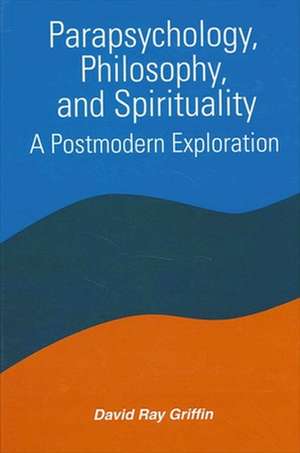Parapsychology; Philos & Spiritual: SUNY series in Constructive Postmodern Thought
Autor David Ray Griffinen Limba Engleză Paperback – 9 ian 1997
Preț: 282.09 lei
Nou
Puncte Express: 423
Preț estimativ în valută:
53.99€ • 58.67$ • 45.39£
53.99€ • 58.67$ • 45.39£
Carte tipărită la comandă
Livrare economică 21 aprilie-05 mai
Preluare comenzi: 021 569.72.76
Specificații
ISBN-13: 9780791433164
ISBN-10: 0791433161
Pagini: 362
Dimensiuni: 154 x 233 x 23 mm
Greutate: 0.54 kg
Ediția:New.
Editura: State University Press of New York (SUNY)
Seria SUNY series in Constructive Postmodern Thought
ISBN-10: 0791433161
Pagini: 362
Dimensiuni: 154 x 233 x 23 mm
Greutate: 0.54 kg
Ediția:New.
Editura: State University Press of New York (SUNY)
Seria SUNY series in Constructive Postmodern Thought
Notă biografică
David Ray Griffin is codirector of the Center for Process Studies and Professor Emeritus of Philosophy of Religion at Claremont School of Theology and Claremont Graduate University. His previous books include Physics and the Ultimate Significance of Time (1986), The Reenchantment of Science (1988), and Founders of Constructive Postmodern Philosophy (1992).







